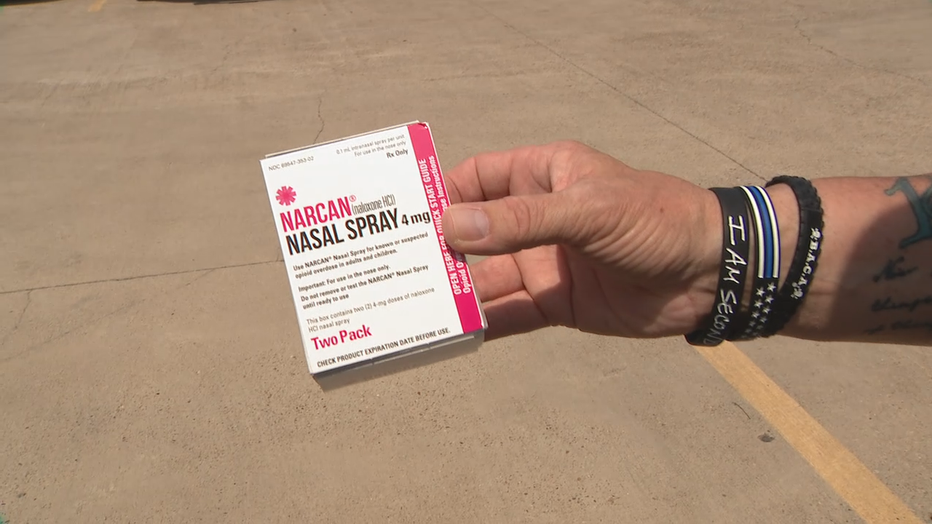Program to give Narcan to overdose survivors underway in Tarrant County

Program to give Narcan to overdose survivors underway in Tarrant County
Medstar has joined with the Recovery Resource Council to distribute the drug Narcan, which can bring a person out of overdose, to drug users and their families.
FORT WORTH, Texas - Tarrant County has seen a concerning post-pandemic increase in drug overdose cases, with many being repeat overdoses.
Now, Medstar has joined with the Recovery Resource Council to distribute the drug Narcan, which can bring a person out of overdose, to drug users and their families.
It’s the only program of its kind right now in North Texas.
The idea behind this unique program is not only to give people a chance to survive, but give them a chance to change their lives.
"We've seen a pretty dramatic increase in the number of overdose responses that we've been responding to," said Matt Zavadsky, with MedStar. "Back in 2019, we averaged about 33 overdose responses per month. In April, we had 66 in one month."
People have been saved by Narcan, a drug that reverses the effects of overdose.
MedStar is now partnering with an addiction treatment specialist, the Recovery Resource Council, to send Narcan home with overdose patients.
Zavadsky said they have given out 270 Narcan kits to 70 families.
"This partnership with the Recovery Resource Council is crucial right now because we don't want people to die, we want people to recover and get into a substance abuse program," Zavadsky added.
"We're following up with people who have survived an overdose within the last 24-72 hours," said Becky Tinney, who directs the overdose response team program at Recovery Resource Council.
The follow up is a conversation that’s more about the future than the past.
"At a minimum, it’s always a conversation about Narcan, because Narcan will keep that individual alive," Tinney said. "And as long as they're alive, there's a chance for that individual to heal."

READ MORE: Officers save woman from overdose in Trophy Club using Narcan
A study published in the Journal of the American Medical Association asked if there is a benefit to take-home naloxone or Narcan.
There were 395 participants followed for one year, and 73 performed 114 opioid reversals with the drug.
The findings suggest that take-home naloxone may be part of a targeted harm-reduction strategy to reduce negative outcomes.
"It really does. It saves lives," Tinney said.
[REPORTER: "what do you say to people who say, ‘Hey, you're enabling folks to continue using drugs?’"]
"These are tough conversations, you know," Tinney said. "We want to keep them alive until the day comes when they're ready to have a conversation about treatment."
The program to offer people Narcan rolled out first in Tarrant County, but the Recovery Resource Council is looking to expand these take-home kits of Narcan to Dallas, Collin, and Denton counties.

